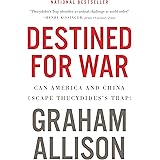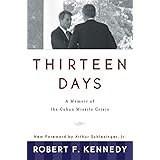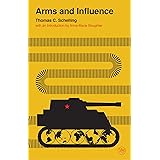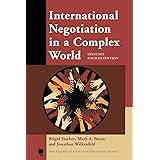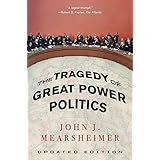
Download the free Kindle app and start reading Kindle books instantly on your smartphone, tablet, or computer - no Kindle device required.
Read instantly on your browser with Kindle for Web.
Using your mobile phone camera - scan the code below and download the Kindle app.

OK
Essence of Decision: Explaining the Cuban Missile Crisis Subsequent Edition
One of the most influental political science works written in the post World War II era, the original edition of Essence of Decision is a unique and fascinating examination of the pivotal event of the cold Cold War. Not simply revised, but completely re-written, the Second Edition of this classic text is a fresh reinterpretation of the theories and events surrounding the Cuban Missle Crisis, incorporating all new information from the Kennedy tapes and recently declassified Soviet files. Essence of Decision Second Edition, is a vivid look at decision-making under pressure and is the only single volume work that attempts to answer the enduring question: how should citizens understand the actions of their government?
- ISBN-100321013492
- ISBN-13978-0321013491
- EditionSubsequent
- PublisherPearson P T R
- Publication dateJanuary 1, 1999
- LanguageEnglish
- Dimensions5.5 x 0.75 x 8.5 inches
- Print length416 pages
Books with Buzz
Discover the latest buzz-worthy books, from mysteries and romance to humor and nonfiction. Explore more
Similar items that may deliver to you quickly
Editorial Reviews
Review
"A page turner-the review of relevant literature is comprehensive, thoughtful, and original." -- Diane Vaughan, Boston College
"More than a revised edition, this is a new book, with the most recent empirical material and sophisticated theorizing. Important as it was, the original Essence of Decision now appears to have been a first draft; this version was worth waiting for." -- Robert Jervis, Columbia University
"The revised edition updates both the theory and the history in a compelling manner. It is an impressive achievement." -- Scott Sagan, Stanford University
Product details
- Publisher : Pearson P T R; Subsequent edition (January 1, 1999)
- Language : English
- Paperback : 416 pages
- ISBN-10 : 0321013492
- ISBN-13 : 978-0321013491
- Item Weight : 14.2 ounces
- Dimensions : 5.5 x 0.75 x 8.5 inches
- Best Sellers Rank: #394,670 in Books (See Top 100 in Books)
- #157 in Caribbean & Latin American Politics
- #11,926 in Unknown
- #12,696 in American History
- Customer Reviews:
About the authors

Graham Allison is Director of Harvard Kennedy School’s Belfer Center for Science and International Affairs and the bestselling author of Destined for War: America, China, and Thucydides's Trap (2017); Lee Kuan Yew: The Grand Master's Insights on China, the United States, and the World (2013); Nuclear Terrorism: The Ultimate Preventable Catastrophe (2004); and Essence of Decision: Explaining the Cuban Missile Crisis (1971, 1999). Founding dean of the Harvard Kennedy School, Dr. Allison has served as Assistant Secretary of Defense and advised the secretaries of defense under every president from Reagan to Obama. He has twice been awarded the Department of Defense's highest civilian award, the Distinguished Public Service Medal, and serves on the Advisory boards of the Secretary of State and Secretary of Defense.

Philip Zelikow is the White Burkett Miller Professor of History and Wilson Newman Professor of Governance at the Miller Center, both at the University of Virginia. There he has also served as dean of the Graduate School and director of the Miller Center of Public Affairs. His scholarly work, first at Harvard, later at Virginia, focuses on critical episodes in American and world history.
Before and during his academic career he has served at all levels of American government – federal, state, and local, including as an elected member of his town’s school board. His full-time federal service began as a teacher for the Navy and then as a career foreign service officer, including work on the NSC Staff for the elder President Bush. His last full-time government service was as Counselor of the State Department, a deputy to Secretary Condoleezza Rice.
In 2001, after the Florida problems, he directed the Carter-Ford commission on election reform that led to the Help America Vote Act of 2002. In 2003-04, he directed the 9/11 Commission. A former member of the President's Intelligence Advisory Board in two administrations (2001-03 and 2011-13), he was also a member of the Defense Policy Board (2015-17).
Customer reviews
Customer Reviews, including Product Star Ratings help customers to learn more about the product and decide whether it is the right product for them.
To calculate the overall star rating and percentage breakdown by star, we don’t use a simple average. Instead, our system considers things like how recent a review is and if the reviewer bought the item on Amazon. It also analyzed reviews to verify trustworthiness.
Learn more how customers reviews work on Amazon-
Top reviews
Top reviews from the United States
There was a problem filtering reviews right now. Please try again later.
Just like the one I bought almost 50 years ago for my American foreign policy course at the u of Minnesota, but could not find it in my basement library. I was hoping my name was in it. I got it for my Jamaican son in law who is interested in the Cold War-due to a current video game!!!!
Makes me shudder to think of our current administration in such a crisis.
It's application to real-world situations is almost without limit: incredible that even a topic as important as the Cuban Missile Crisis is almost pushed to the background.
Oddly, the models of decision-making are so universal, the extra historical information added to the earlier edition, which I read decades ago, are almost a distraction. If that is a "criticism" of the book, then you can take it that way, but it is only when compared to the universality of the principles of decision-making stated.
It's an event that bears retelling and, with qualification, the device works. The upshot is that we get some insight into the missile crisis. But not at all incidentally, we get some insight into the academic study of politics (I resist calling it "political science"), and a whiff of what it might have to offer for our better understanding of the world.
Aside from the Kurusowa effect, there is another structural innovation. We have, in a sense, two books interleaved, like Faulkner's "Wild Palms." The even-numbered chapters tell (and retell) the basic story. The odd-numbered chapters offer a framework of "theory."
I suppose you might read just the even-numbered chapters - indeed the authors themselves suggest as much, though rather half-heartedly. And indeed, the odd-numbered chapters can be heavy going. One cannot help recalling the old canard about the sociologist as a person who gets a government research grant to find the bordello next door. You are tempted to say that their theory is what sophisticated people know anyway, and the clueless will probably never figure out.
But there is an answer to this dismissal. That is: most (or at least) a lot of history gets told from the standpoint of the "rational actor." A survey of the competing approaches makes it clear just what this approach leaves out. And if the polyphonic approach is so obviously superior to the single narrative line, then why have historians from Thucydides to Henry Kissinger been willing to do without it? One answer might be: for all their talents, they simply haven't learned the way to tell a story in any other way.
So on the whole, retelling works. But not, perhaps, as well as it might. Another reviewer has said that this isn't really a case to illustrate "organization" theory here because this is not a case that highlights organizations - rather, at least for the United States, the response to the Cuban missile crisis was the work of a small group of men, working together in close cooperation. There is some merit to this view: concededly, you do not get the clash of bull elephants that you might have got at another time when Defense makes war on State, and both work together to fend of Intelligence. But you get a taste of it: we find that the Joint Chiefs were most hospitable to an invasion; that State thought that maybe we could talk it through; and that John McCone from the CIA was the one person who most clearly anticipated the threat. Moreover, you see the "organization" problem in a somewhat different light, when you see how the President's orders were massaged or modified by the military (sometimes, even, within the military).
But perhaps in any event, I need not get too distracted by the framework. Along the way, there are any number of nuggets that stand pretty well on their own. I liked in particular, for instance, the discussion of the role of committee work. We tend to stick up our nose at any project done by committee. But, argue our authors, in World War II it was Churchill, high-handed as he was, who worked through committee-and virtually always followed the committee's advice. The "strong leader" who kept things close to his vest, was Hitler.
But more generally - I was already an adult at the time of the Cuban missile crisis, and I remember it well. Specifically, I remember how frightened were so many people in my surroundings. I wasn't that frightened; I figured that one way or another, we would rub along. In the end, of course, I was right - we did rub along. But I think in retrospect, it was I who was kidding myself and the Nervous Nellies who had the right attitude. We did rub along, but as Wellington said about the Battle of Waterloo, it was a near thing. I particularly like Robert Kennedy:
"The fourteen people [in the American inner circle] were very significant-bright, able, dedicated people, all of whom had the greatest affection for the U.S. ... If six of them had been President of the U.S., I think that the world might have been blown up."
[Final technical note: one or more of the other reviews appear to be discussing the first edition of this book. The (current) seocnd edition is not a mere cosmetic update, but substantially a new book].
A must-read for anyone who has to understand why organization end up doing what they do.
A must-read for anyone interested in the missile crisis.
The only nitpick is that I think the title is not chosen well. This book does so much more than what the title implies.



